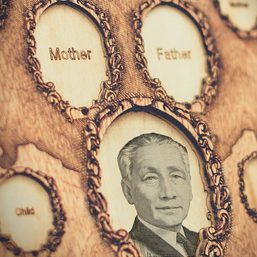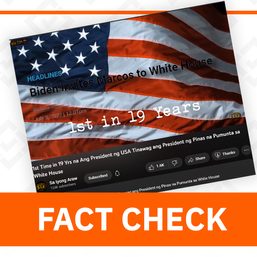SUMMARY
This is AI generated summarization, which may have errors. For context, always refer to the full article.
![[OPINION] The unfinished legacy of Noynoy Aquino](https://www.rappler.com/tachyon/2021/06/TL-PNoy-June-25-2021.jpg)
President Benigno Aquino III left the country a mixed, surely imperfect, but overall good legacy. We saw that he tried his best, was not driven by ambition and self-interest, and had nothing but the best of intentions for the country in mind. He prioritized the fight against corruption and enshrined transparency and accountability in government procedures. (Unfortunately, not all within his official family could claim consistency with those principles.)
His stewardship of the economy was excellent. But while he made sure that the poor were prioritized in social welfare and anti-poverty programs like the conditional cash transfer program, his administration did not address the social inequality which pervades our country and which, in the pandemic, has been exacerbated.
Biggest success, worst failure
The historic meeting with Murad Ebrahim, in secret, to get the Framework Agreement on the Bangsamoro on track. His support for the Reproductive Health Bill in the face of Church opposition. His single-mindedness in taking on Beijing with the Law of the Sea — and trying to reorient the Armed Forces from its internal security comfort zone to external protection. These were good moments in the six years PNoy was our president.
But PNoy’s biggest success was the Bangsamoro Peace Agreement in terms of direct impact on people. Thousands of lives were saved because he had the vision and political will, and appointed the right people to close that peace agreement. Tens of thousands, indeed millions, of people have seen and will see their lives improve because PNoy made the right call. To be sure, his predecessors Fidel V. Ramos and Gloria Macapagal Arroyo paved the way for this, and his successor President Duterte has been equally determined to get this done.
He certainly did the right thing on the China territorial dispute and in deciding that the Philippines join the Rome Treaty that created the International Criminal Court. Duterte might have repudiated both of these foreign policy decisions, but history will prove Aquino right and the current President wrong.
President Aquino also made good decisions that enabled us to be influential in the negotiations on the Paris Agreement on climate change, but his energy policy was too pro-coal and made us a laggard in renewable energy, setting us back by a decade in our transition to a low-emissions economy. It must also be said that the Aquino administration failed the people during the Yolanda disaster.
Education was a top priority for the Aquino administration. It implemented much needed reforms to prepare our young people for a more competitive world. With the pandemic, which has stranded in an educational limbo so many of our children, it is obvious that so much needs to be done on that front.
The Aquino record on human rights had serious gaps, but he did appoint good, committed people in the Commission on Human Rights and made sure that General Palparan would be captured. There is no comparison to be made between Aquino’s record on human rights to that of Duterte’s, whose crimes against humanity have gotten the attention of the International Criminal Court.
Aquino biggest failure was that he was not able to reform our politics; this was not his inadequacy alone but a collective failure by our politicians and the citizenry. Post-PNoy, our politics have become even more corrupt, dynastic, and feudal. This is ironic because Aquino was in a way quite a modern president, but after his presidency, we have regressed considerably.
Twist and turns of ‘Daang Matuwid’
“Kung walang kurap, walang mahirap.” If there is no corruption, then there is no poverty. Aquino staked his presidential campaign, then his administration, on his “Daang Matuwid.” Admirable and necessary as it was, the slogan also was a gross reduction of the complexities of Philippine poverty. Corruption is a major factor, sure, but it is not the sole proximate cause, to borrow a legal term. Yet campaign slogans demand memetic simplicity. To be fair to Noynoy, he is not the first nor the last to be so reductionist.
But he certainly brought a different trade wind to Philippine governance’s sails since the tenure of his mother Cory, whose own passing admittedly gave his campaign an adrenaline surge. A combination of “Daang Matuwid” and “Kayo ang boss ko” (You are my bosses) emphasized a values- and norms-driven governance for the former and engagement with civil society (if not quite the populace) in the latter.
Moralistic politics has a way of coming back to haunt us, reminiscent as it is of what is being called “cancel culture.” Being held up to one’s values and found wanting feeds grist to the mill.
If out of honest belief he saw Chief Justice Renato Corona as an Arroyo-era obstacle to his reform agenda, good intentions have unintended consequences: a straight line can be drawn from Corona’s impeachment to Maria Lourdes Sereno’s ouster, by the beating of the Statement of Assets and Liabilities (SALN) like a dead horse.
In the Corona episode, he repeated a flaw of predecessor and successor alike. Sometimes, both politicians and people forget that a president is not a datu, no matter how well-informed or intentioned.
The limits of moralistic governance
Noynoy contended with deep-rooted structures that animate and incentivize elitism, corruption, and violent exploitation in Philippine politics – issues that that no single President, no single campaign, no matter how pure, can uproot. He was made to play the damned game like everyone else. Despite that limit, though, he animated and invigorated a host of actors, institutions, and agencies that could work in the long term to dismantle these rotting structures. That was the point of “Kayo ang boss ko”: drawing society into governance through clear channels of participation.
Those closer to Aquino know his heart was in the right place. But good intentions do not necessarily lead to good results; everything above and elsewhere paints a mixed picture of the Aquino administration. But one thing is sure: PNoy believed good governance was achievable.
“Daang Matuwid” and government transparency may have set too ideal a bar for his administration, let alone for his political powers, but it was a bar that needed to be set.
His administration never fully caught up with Yolanda’s demands and its victim’s needs, but it also drove the Philippine climate change negotiation and negotiators alike to aim to mitigate, to stop, the next Yolanda. The Yolanda experience also led to the creation of Project Noah and a culture of disaster risk reduction. However necessary the Mamasapano’s raid and his assent to it may have been, he gave the Bangsamoro’s momentum a needed booster shot. The West Philippine Sea showed he believed in what the Philippines could be, even if he had to deal with what the Philippines is (and America, and China, etc. are), for good or for ill.
And with “Kayo ang boss ko,” he likely wanted to leave a legacy in which the people themselves, not false messiahs or illusive white knights, should take the lead – something his own parents believed in.
It’s on us to complete PNoy’s legacy
That’s the thing about death. As Noynoy learned in 2010, it can create messiahs even of the unready. But as we should learn now, as we think he would want us to learn now, death also leaves a legacy taken up by the heirs. And PNoy’s heirs are us, the citizens of this country.
PNoy failed to reform our politics, but frankly, that was not his job. We must do that now, if only to honor his legacy of reform. If there is one lesson from the Aquino years, it is that we cannot be half-hearted about reform.
We cannot just reform our economy; we must change it radically to address the roots of inequality. We cannot just reform the bureaucracy by tinkering with laws and procedures; we must thoroughly retrain and reform the people that join government. We must above all reform our politics and move it from the dominance of personalities and families to one of ideas and platforms.
Whoever can unify us to work together on this project come 2022 is the leader we all want and must vote for. The worst thing the opposition can do is to claim PNoy solely as their own and to use his death as a rallying cry against fellow Filipinos of goodwill.
Eternal rest grant unto your servant Benigno, oh Lord, and may his parent’s light give him comfort. May we find the peace he sought for us and give us the courage to change this country – thoroughly, in all aspects, and from Batanes to Sulu. – Rappler.com
Tony La Viña teaches law and is former dean of the Ateneo School of Government.
Christian Laluna is a graduate of the Ateneo Law School. He is writing a book with La Viña on the Bill of Rights during the pandemic.
Add a comment
How does this make you feel?



![[EDITORIAL] Marcos, bakit mo kasama ang buong barangay sa Davos?](https://www.rappler.com/tachyon/2023/01/animated-marcos-davos-world-economic-forum-carousel.jpg?resize=257%2C257&crop_strategy=attention)

There are no comments yet. Add your comment to start the conversation.